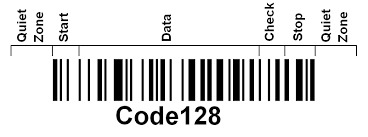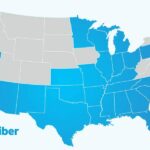The user searching for the 128 area code is looking for a geographical location, but the most important fact is that the number 128 is not a valid or assigned geographic area code in the North American Numbering Plan (NANP), which includes the United States, Canada, and the Caribbean.
The entire numerical range of 001 through 200 is officially marked as an Invalid Area Code Range by the NANP Administrator (NANPA) for standard geographic use.
This article clarifies the status of the 128 area code, explains why you might encounter the number, and details why any call displaying this sequence should be treated as suspicious.

Status of Area Code 128
The three-digit sequence 128 is reserved and unassigned, preventing it from being used to place or receive standard telephone calls from a specific city or region.
| Detail | Information |
| Area Code Status: | Unassigned / Invalid. Cannot be used for general telephone service. |
| Geographic Location: | None. |
| Closest Valid Area Code: | The lowest geographic area code in use is 201 (New Jersey). |
| Source of Confusion: | The number is often mistaken for Route 128 in Massachusetts or a non-phone system code, such as Code 128 barcodes. |
The “128” Phone Prefix (NXX)
While 128 cannot be the area code (NPA), it can be the central office prefix (NXX) within a valid area code.
For example, the phone number (617) 128-XXXX is an invalid number due to the prefix “128”. Phone prefixes in North America follow specific rules, and traditionally, prefixes beginning with ‘1’ are not valid for geographic lines. However, modern VOIP technology often routes traffic via internal codes that can appear in logs.
Why You Might Encounter the Number 128
If you have seen the number 128 in a phone log or on your caller ID, it is generally due to two reasons unrelated to a physical geographic location:
- VoIP or Telemarketing Spoofing: Scammers and spammers frequently use call ID spoofing to display fake numbers. They often choose unassigned codes like 128 because the number is untraceable to a legitimate entity, increasing the chances that a user will ignore or be unable to report the call.
- Internal System Codes: In some telecommunications systems, particularly on older networks or when dealing with multi-device syncing, the number 128 may appear in system logs as an internal routing code for certain types of messages (like MMS or voicemail notifications). This is a technical detail and not a number you can call back.
Frequently Asked Questions (FAQ)
What is the most common use of the number 128?
The number 128 is most famously associated with Code 128, a high-density alphanumeric barcode standard used worldwide in shipping, packaging, and inventory management. This is a computer code, not a telecommunications code.
Should I answer a call from a number starting with 128?
No. Because 128 is not a valid geographic area code, any incoming call that displays (128) XXX-XXXX on your caller ID should be ignored. The call is either from a spammer, a scammer, or a badly configured automated system. Answering the call validates your number for future unwanted solicitations.
Could 128 be a country code?
No. International Country Calling Codes are typically 1 to 3 digits. No country has the international code of +128. The country codes that begin with 1 (like 1242 for the Bahamas or 1671 for Guam) are part of the North American Numbering Plan and use the leading digit 1 as the international access code.
Conclusion
The 128 area code is definitively unassigned and invalid for placing or receiving calls from a specific geographic location in North America. If this number appears on your device, exercise caution and do not return the call, as it is highly likely to be associated with spam or fraudulent activity. Rely on established area codes (201 and up) for legitimate calling in the region.


